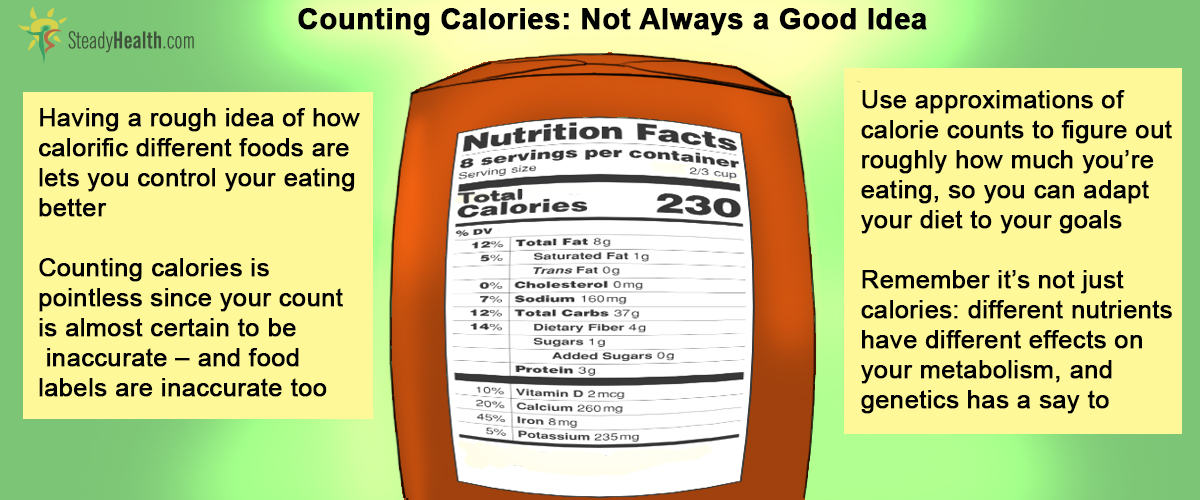Table of Contents
So, should you count calories?
It depends who you are. People who are fairly fit and close to where they want to be often don’t need to count calories. People who are far overweight usually have no idea what they eat, typically misreporting eating by about 800 calories a day! Here, a food diary works well. For the underweight, counting calories is a good way to remind yourself to eat more.
It’s so common that we don’t notice it - every diet plan or weight loss method talks calories. Ever time you see a slimming or healthy meal plan or recipe, calories get a mention - and sometimes they seem to be so accurate that they couldn’t possibly be right. How can you say your slice of carrot cake has 406 calories? That would have to be accurate to the crumb.
In fact, how accurate is calorie counting generally?
Not very.
In many cases, the caloric content of food is assessed in a laboratory. Calories are energy expressed as heat - a calorie is a unit of heat energy, the amount of energy required to raise the temperature of a kilogram of water by one degree Celsius. Foods are rarely simply burned nowadays to find out how many calories they contain. Instead, they’re frozen in liquid nitrogen and ground to a fine powder. Experiments are performed on this powder to reveal caloric content, fat content, protein content and so forth. But while these are often chemical experiments they use a table of results that was devised in the nineteenth century by a chemist, Wilbur O. Atwater, who really did just burn things to measure the heat they gave off, in a machine he called a ‘bomb calorimeter.
So when you read the number of calories in food you’re buying, just remember it was worked out by people in the lab referring to the data of a man whose life’s work was trying to boil water with hamburgers.
Is it possible that the amount of calories we think is in our food is wrong?
No. It’s almost certain.
Not everything burns in the same way or the same rate, and while the reactions inside the human body that turn our food into energy are exothermic oxidising reactions - literally burning - the job isn’t all done in great big fire in your belly. The amount lost in heat differs wildly from macronutrient to macronutrient, by a margin of about 25%, for one thing.
See Also: Are You Wasting Your Time Counting Calories?
It’s now time to be fair to Wilbur Atwater: he foresaw this problem and did some of his experiments measuring the energy output of an active person who ate the foods he was testing, but the results are still unreliable.
- Mindmap by steadyhealth.com
- Photo courtesy of Jason Tester Guerrilla Futures by Flickr : www.flickr.com/photos/streamishmc/5410300831



Your thoughts on this